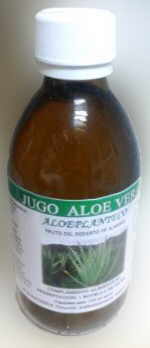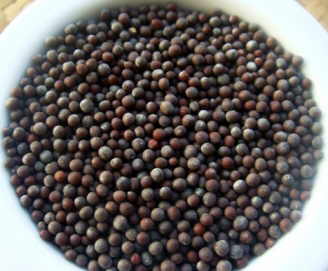Contents
Aloe gel for heartburn and gastric ulcer

The anti-ulcer properties of aloe probably come from its richness in mucilage or mucopolysaccharides that cover the gastric mucosa, softening it, protecting it and reducing acidity. Likewise, other antiulcer components are glutamine, glycine, histidine, beta-carotenes and zinc.
Some specialists also point to possible anti-inflammatory effects of the intestinal mucosa to the series 1 prostaglandins that are formed in the body when ingesting the fatty acids of this plant. No less directed is the option of considering the capacity of this product to inhibit the growth of the Helicobacter pylori bacteria responsible for the development of numerous cases of gastritis and stomach ulcers.
Although it is not known exactly how aloe vera is capable of treating the stomach, the truth is that it has been shown that in cases of inflammation, heartburn, hiatal hernia, reflux, gastritis and gastric ulcers, aloe gel has a powerful gastric mucosa recuperator, as well as a good role as a cholagogue
How to take aloe vera for digestive diseases
The best way to treat these problems with aloe is with aloe gel. To do this, it is advisable to look for a product that contains 98% aloe gel, without aloin or aloe emodin (these latex components are very irritating). Other specialists recommend taking a tablespoon of aloe gel dissolved in warm water after each of the three main meals. It must be accompanied by an adequate diet, respectful of the intestinal mucosa See: Diet for stomach and duodenal ulcer
It can also be taken in the form of tablets or drops, distributed throughout the day before meals. (Generally, 20 drops per meal of tincture) or in the form of powder capsules (0.05 gr per capsule before the three main meals)
Aloe for intestinal diseases
Treatment with aloe gel is generally positive in people who have other mild

inflammatory intestinal problems, such as patients with inflammatory bowel disease, ulcerative colitis, irritable colon, leaky intestine, or Crohn’s disease. (The dose applied is usually 75 ml to 150 ml of aloe gel daily, divided into three intakes).
In case of outbreaks of these diseases, the use of this remedy is usually counterproductive (depending on tolerance). (See the study of these diseases for the appropriate remedies for each of them).
Acibar or aloe latex for constipation
Aloe latex is a laxative and, increasing the dose, purgative. This property is due to anthraquinones (aloin aloemoedin, barbaloin) and its magnesium content, which increases the peristaltic movements of the intestine. (As a laxative, take 0.03 gr. of dry extract and wait for the reaction that occurs after 6 to 8 hours. If you want a purgative effect, the dose should be 0.1 gr.)
How to take aloe for constipation: As a laxative take 0.03 gr. of dry aloe extract (300 mg) and wait for the reaction, which occurs after 6 to 8 hours. It is generally taken at night so that the effect is felt in the morning. If a purgative effect is desired, the dose should be 0.1 gr. You should not exceed 10-30 mg of anthraquinones per day, equivalent to 50 – 200 mg of dried aloe juice (See instructions for use of the supplement).
Aloe acibar should not be used regularly due to the dangers and toxicity of stimulant laxatives, among which is intestinal dependence. Although they are recommended in case of occasional constipation, other remedies and a diet rich in fiber and water are better for chronic constipation.
Aloe vera for cancer and immune diseases
Studies are being carried out on whether its content of antioxidant components (beta-sitosterol, vitamin C, beta-carotene, vitamin E, zinc and selenium) could give it anti-cancer properties, especially with regard to prostate cancer, breast cancer, stomach cancer and lung cancer.
Apart from its antioxidant power, it is believed that aloe vera, due to its richness in acetylated mannose, has adequate properties to stimulate the immune system and increase defenses, so it could play a positive role in preventing the development of cancer cells. Despite this, there is no definitive evidence on whether aloe vera can be really useful in the prevention and treatment of cancer or in other diseases in which the immune system is compromised such as AIDS, flu, etc.
Aloe vera for cholesterol
Some studies seem to indicate that ingesting aloe vera is capable of reducing cholesterol and triglycerides in a third of patients who take between 10 ml or 20 ml daily for about three months. The remaining 70% of the individuals undergoing this treatment do not show any benefit.
Is aloe vera good for diabetes?
It is being studied whether aloe vera is able to lower blood sugar in people with type II diabetes. Although some studies have been positive, there is not enough evidence to affirm that this plant should be used in the treatment of diabetes.
![]() More information on aloe vera
More information on aloe vera








